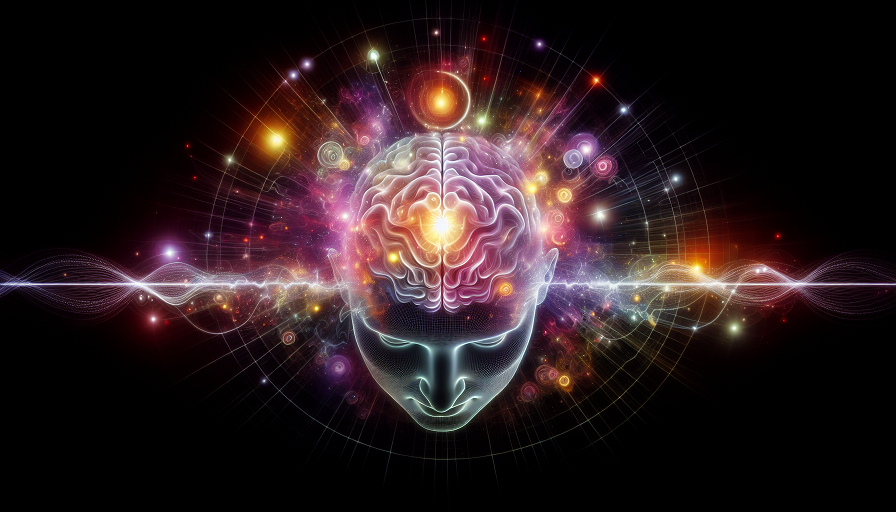
Stress is an inevitable part of life, especially for students juggling classes, assignments, and exams. While short-term stress can sometimes enhance performance by sharpening focus and energy, chronic stress—persistent, long-term stress—can have devastating effects on both memory and learning. Understanding how chronic stress impacts cognitive function is crucial for students seeking to protect their mental health and academic performance.
Contents
What Is Chronic Stress?
Chronic stress occurs when the body remains in a prolonged state of heightened arousal due to ongoing challenges or pressures. Unlike acute stress, which is a temporary response to immediate threats, chronic stress persists over time and can lead to serious physical and mental health issues.
Common sources of chronic stress for students include:
- Academic pressures, such as deadlines and exams.
- Financial concerns, including tuition and living expenses.
- Balancing multiple responsibilities, like part-time jobs and extracurricular activities.
- Social and relationship challenges.
When left unchecked, chronic stress disrupts the body’s natural stress-response system, resulting in harmful effects on the brain and overall health.
How Stress Affects the Brain
To understand the impact of chronic stress on memory and learning, it’s important to explore how stress affects the brain at a physiological level. Here’s what happens when you experience stress:
Activation of the HPA Axis
Stress activates the hypothalamic-pituitary-adrenal (HPA) axis, a complex system that regulates the release of cortisol, the body’s primary stress hormone. While cortisol is helpful in short bursts, chronic stress causes sustained cortisol levels, which can harm brain function.
Shrinkage of the Hippocampus
The hippocampus, a region of the brain critical for memory formation and learning, is particularly sensitive to cortisol. Prolonged exposure to cortisol can cause shrinkage of the hippocampus, impairing memory and the ability to retain new information.
Impaired Prefrontal Cortex Function
The prefrontal cortex, responsible for decision-making, attention, and higher-order thinking, also suffers under chronic stress. Disruptions in this area make it harder to focus, plan, and solve problems effectively.
Overactivation of the Amygdala
The amygdala, the brain’s fear and emotion center, becomes overactive under chronic stress. This heightened activity can exacerbate anxiety and interfere with rational thought processes.
Neurochemical Imbalances
Chronic stress disrupts the balance of neurotransmitters like dopamine and serotonin, which play key roles in mood regulation and cognitive function. This can lead to memory lapses, difficulty concentrating, and emotional instability.
The Impact of Chronic Stress on Memory
Memory is one of the cognitive functions most affected by chronic stress. Here’s how stress undermines different types of memory:
Short-Term Memory
Short-term memory, or working memory, is essential for tasks like solving math problems or remembering a list of items. Chronic stress impairs the brain’s ability to hold and manipulate this information, leading to forgetfulness and mental fatigue.
Long-Term Memory
The hippocampus plays a critical role in converting short-term memories into long-term storage. When this area is damaged by cortisol, the ability to retain information for future use diminishes, making it harder to recall facts and concepts learned in class.
Emotional Memory
Stress can strengthen emotional memories, such as those tied to fear or failure, while weakening neutral or positive memories. This bias can make students more likely to dwell on past mistakes, further increasing anxiety and stress.
The Impact of Chronic Stress on Learning
Learning requires focus, critical thinking, and the ability to process new information—all of which are compromised by chronic stress. Here are some of the ways stress hinders learning:
Reduced Focus and Attention
Chronic stress disrupts the prefrontal cortex, making it harder to concentrate on lectures, assignments, or exams. This lack of focus can lead to missed details and diminished academic performance.
Decreased Problem-Solving Abilities
Stress impairs higher-order thinking skills, such as analyzing information, drawing connections, and generating creative solutions. This can make problem-solving tasks feel more challenging than they actually are.
Increased Mental Fatigue
Sustained stress drains mental energy, leaving students feeling overwhelmed and unmotivated. This fatigue makes it difficult to stay engaged in academic work and complete tasks efficiently.
Hindered Motivation
Chronic stress can erode intrinsic motivation, making students less interested in their studies and more likely to procrastinate or avoid academic challenges altogether.
Strategies to Combat Chronic Stress
While the effects of chronic stress on memory and learning can be severe, there are effective strategies to mitigate these impacts and protect your cognitive function. Here are some practical tips for managing stress:
Practice Stress-Reduction Techniques
Incorporate mindfulness practices, such as meditation, deep breathing, or progressive muscle relaxation, into your daily routine. These techniques help lower cortisol levels and improve focus.
Prioritize Sleep
Adequate sleep is essential for memory consolidation and stress recovery. Aim for 7–9 hours of quality sleep each night and maintain a consistent sleep schedule.
Maintain a Balanced Diet
Eat nutrient-rich foods that support brain health, such as omega-3 fatty acids, whole grains, leafy greens, and lean proteins. Avoid excessive sugar and caffeine, which can exacerbate stress.
Stay Physically Active
Regular exercise reduces cortisol levels, boosts mood-enhancing endorphins, and improves overall brain health. Activities like jogging, yoga, or even a brisk walk can help alleviate stress.
Manage Your Time Effectively
Break tasks into smaller, manageable steps, and use tools like planners or apps to stay organized. Time management reduces the feeling of being overwhelmed and helps you approach work more calmly.
Seek Support
Don’t hesitate to reach out to friends, family, or a counselor for emotional support. Sharing your concerns can help lighten the mental load and provide new perspectives.
Chronic stress poses a significant threat to memory and learning, undermining key cognitive functions and making academic success more difficult to achieve. However, understanding how stress affects the brain is the first step toward combating its effects. By adopting stress-management strategies like mindfulness, proper sleep, and a healthy lifestyle, students can protect their cognitive health and thrive in the face of academic challenges. Remember, managing stress is not just about surviving—it’s about creating the mental space to learn, grow, and succeed.

